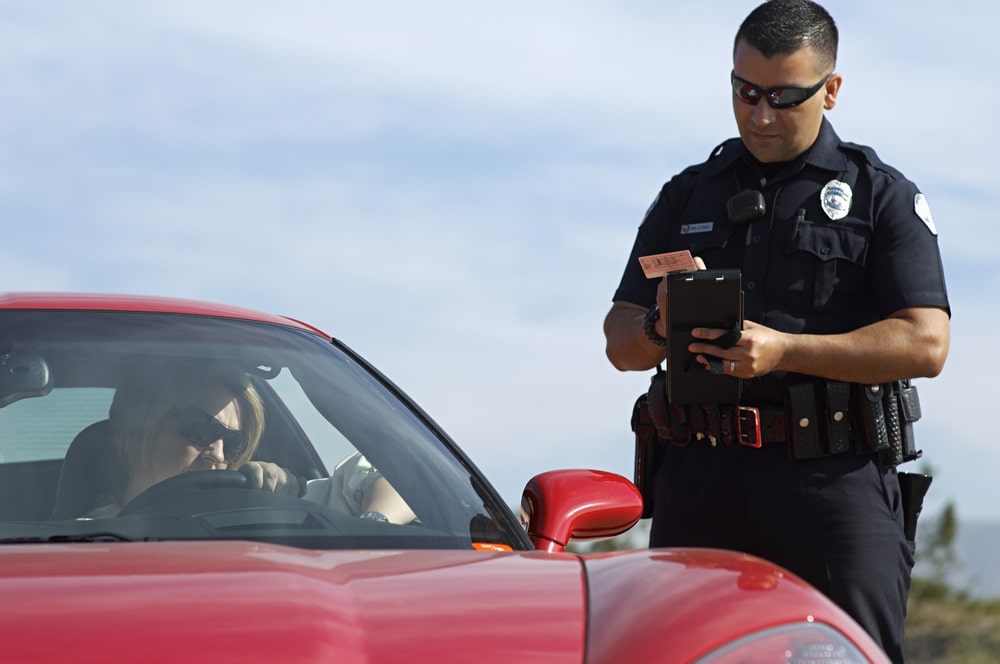Caught Speeding? How to Handle That Ticket Like a Pro
Justin S
Created by: Oct 30, 2025
|
Modified by: Nov 07, 2025

So, you got a speeding ticket. Bummer. Maybe you were rushing to work, late for a meeting or just lost track of the speedometer on the open road. Whatever the reason, now you're staring at a fine, potential insurance hikes, and maybe even points on your license. Before you decide to pay up and grumble about it, take a breath and relax; there’s actually a decent chance you can fight it and win. Here’s how to do it without sounding like a lawyer or going completely insane.
Firstly, Stay Calm and Read the Ticket Carefully
The worst thing you can do after getting a moving violation is to toss the ticket in the glove compartment and forget about it. The first thing you need to do is examine the citation carefully. Check the date, time, location, speed you were allegedly going and the speed limit. Note the equipment used to capture your speed. Also check the officer’s name and badge number. Understanding and analyzing this info is gold if you decide to fight the ticket.
Most importantly, check the deadline to respond. If you miss it, you could be hit with late fees, a suspended license, or even a warrant. So, mark that date in your calendar.
Decide: Should You Fight It?
Not every ticket is worth challenging. If you were going 80 in a 35, and there’s a radar printout and a photo of your license plate, your odds aren’t great of getting it dismissed completely, but it is possible you can get it reduced. But if the speed was borderline, the conditions were sketchy (like poor visibility or confusing signage), or you have a clean driving record, your chances are much higher of getting it tossed out.
Also, consider the stakes. Moving violations come at an additional cost that may not be obvious at first; however, it will likely increase your insurance rates and add points on your license.
Gather Your Evidence
This is where you go from “annoyed driver” to “prepared defendant.” Think like a detective.
- Check the radar gun calibration records. Officers are supposed to calibrate their radar guns regularly. If they didn’t, or can’t prove they did, that’s a solid defense.
- Look at the road conditions. Were there sharp curves, poor signage, or confusing speed limit changes? Was the speed limit sign obstructed or damaged? Was it raining or foggy? These conditions can make a difference.
- Was the officer in a good spot to observe? Could they clearly see your car? Were there obstructions? If they were parked behind a bush or around a blind curve, their view might not have been reliable.
- Check your own records. Did you recently get your speedometer checked? If it’s off, that could explain why you thought you were within the limit.
- Get witness statements. If someone was in the car with you, they might back up your version of events.
And don’t forget to submit any digital evidence that can act in your favor. Do you have dashcam footage? Even a quick video from a passenger could help.
Choose a Single Battle Strategy
You’ve got a few options; however, you can only pick to argue one. Studies show that your case is more effective when you stick to one argument and provide proof. Here are your options:
- Contest the Ticket (aka “Not Guilty, Your Honor”)
By contesting the ticket, what essentially you are doing is saying, “I didn’t do it” or “The evidence doesn’t hold up.” This is where you bring in your evidence and challenge the officer’s account. Be ready for a court date and some back-and-forth.
- The “Mitigation” Plea (aka “I’m Sorry, Let’s Make a Deal”)
You admit you were speeding but ask the judge to reduce the fine or keep points off your record. This works best if you have a clean history and a good reason—like rushing to the hospital or a family emergency. Be polite, honest and brief.
- Plead Guilty with an Explanation
While this is the least favorable strategy in some cases, admitting fault to a lesser violation and clearly explaining the circumstances may sway in your favor. Sometimes judges appreciate honesty and context, especially if you’re otherwise a responsible driver.
Show Up to Court (Don’t Be Late)
If you choose to fight, showing up is half the battle. Courts hate no-shows. Dress like you respect the process- no ripped jeans or flip-flops. Be polite to everyone: the judge, the clerk, even the officer who ticketed you.
When it’s your turn, stick to the facts. No drama, no excuses like “My dog made me late.” Focus on things like:
- “The speed limit sign was blocked by a tree.”
- “The radar reading could have been affected by nearby traffic.”
- “I was driving the flow of traffic, and everyone was going about the same speed.”
Avoid sounding defensive or entitled. You’re not arguing with your buddy; you’re making a case to a judge. If you are unable to defend yourself effectively, strongly consider hiring a lawyer to speak on your behalf. While it may add additional cost to the process, it may increase your chances of winning the case.
What If You Win?
Sweet. No fine, no points, no insurance spike. Celebrate responsibly (and within the speed limit).
What if you lose?
It happens. But at least you tried. And sometimes, even losing can have a silver lining—maybe the judge reduced the fine or gave you a warning instead.
Pro Tips
- Research your local laws. Rules vary by state or county. Some places are more lenient; others are strict.
- Ask for a continuance if you need more time. Courts usually grant one if you ask politely.
- Consider traffic school. In some areas, completing a course can keep the ticket off your record—even if you paid it.
- Stay calm and respectful. Judges respond way better to “I just want to explain what happened” than “This is a cash grab!”
Final Thought
Fighting a speeding ticket isn’t about gaming the system; it’s about fairness. If you were treated unfairly, made an honest mistake, or there’s real doubt about what happened, you’ve got every right to speak up. It takes effort, but sometimes, it’s worth it. Maybe this whole mess will remind you to ease off the gas a little next time you get behind the wheel.





